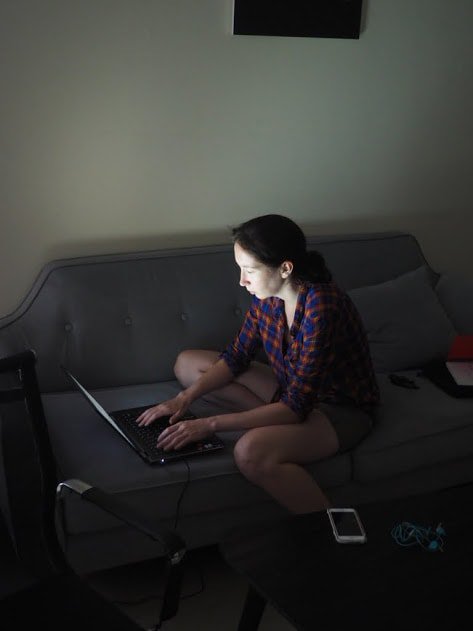
Admit it. At least once in your life, you’ve woken up with a headcold and googled the symptoms. Fatique. Stuffiness. Headache. The further you dug into the world of online self-diagnosis, the more convinced you became that it was something more serious. This could have lifelong health repercussions. This could even be something potentially… karmic.
In the last seven months of fieldwork, I have met a lot of people whose spiritual convictions come from the internet. When I misread a wedding invitation and arrived two hours early, I found myself watching youtube videos of a Nigerian minister dubbed into Vietnamese with the bride’s co-worker’s mother who wanted to persuade me that Christianity could cure HIV/AIDS. Another time I ran 45 minutes late to lunch with a fellow southeast Asia scholar because my motorbike taxi drove below walking speed. At each stoplight the driver turned around to show me another page of the Falung Gong pamphlets he was distributing. He had been sick for months, he explained, until he googled his symptoms and realized that his ailments were fundamentally moral. Now with daily exercise and meditation, he explained, he had more energy, more money, and a gentle spirit. I could trust Falung Gong, he explained, because it was a practice, not a religion.
Why the internet, and why not “religion”? Like that driver, some of the people I’ve talked with are skeptical of organized religion and institutions. They are suspicious of the vested interests of religious leaders. Committing to following one group or spiritual master could also mean devoting valuable resources of time and money to a system with hidden problems. The internet, however, is not only free to access, but also free to interpret, bend, combine, or leave. It is the buffet option of belief and practice.
The internet is also accessible during interstitial moments of boredom at work or waking from a fitful sleep, while many brick-and-mortar buildings require commutes during visiting hours. This isn’t to say internet activity is always at odds with organized religion: in the same restless moments, someone dedicated to a religious path may also access articles by their teacher or play videos of a soothing chant. For at least two of my friends, these kinds of restless midnight searches lead them from general agnosticism into new, definitive religious identities.
The internet is, in many ways, like the city itself. Urban anonymity is both a source of moral anxiety and creativity. On one hand, many of my friends and contacts describe the city as a dangerous place, full of strangers seeking to take advantage of the unsuspecting. On the other hand, when asked, few say they want to move back to their hometowns. Despite its uncertainties, the city is also a source of unexpected work opportunities, new activities, cosmopolitan tastes, and space for self-reinvention.
The internet and the city, alike, are sources of anonymity, exploration, and abundance. One must be careful about where one registers or shares information, but these hyper-networked spaces can also open endless gateways into new ways of understanding self, community, and the cosmos.
---------------------------------------------
Contact Information
